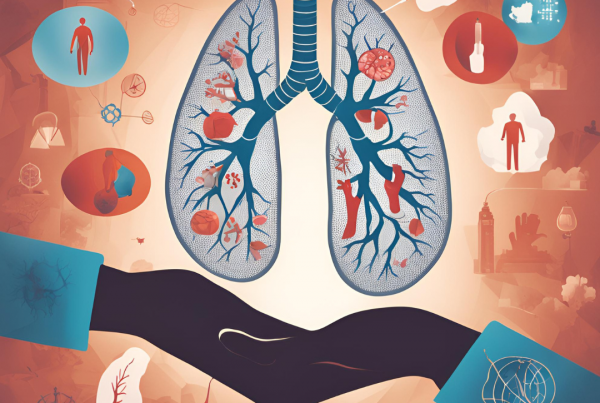A 4-year-old girl is brought to the Emergency care unit of a local hospital. She has had a dry cough that gets worse in the night. On admission to the hospital, the child is having difficulty to breath and there is a whistling sound from her chest. she has a few known food allergies. Her mother has eczema and her father is a smoker.
The Doctor at the ETU nebulizers her 3 times in a row and the child feels much better. He also warns the parents that the child needs long term treatment for Bronchial Asthma as if undiagnosed and untreated, childhood asthma could be life threatening.
What is asthma?
Asthma, affecting 13% – 25% of children below the age of 11, is one of the commonest chronic childhood diseases, requesting emergency pediatric care marked by difficulty in breathing with wheezing.
Allergic asthma is usually genetically passed down in generations. Other risk factors include prematurity, obesity and environmental pollution.
An asthmatic’s airway is much more sensitive than a non-asthmatic and an Acute attack can be precipitated by airway irritants or allergens like pollen, tobacco smoke, dust and also factors like an already ongoing airway infection, stress and exercise.
What happens in an Acute Asthma attack?
In response to a trigger, muscles in the air-tubes (bronchioles) constrict causing “broncho-constriction” and the mucous glands secrete extra sticky mucous which clog the airways, making it difficult for air to pass through.
The presentation of a child with asthma can be varying degrees of shortness of breath, elevated heart rate and audible wheezing. In severe states they could have a dusky tinge to their skin with inability to finish a sentence in one breath!
To aid the respiration the smaller muscles around the chest wall like the muscles in the ribs and neck get involved. There is a gradual building up of lack of oxygen in the body, if left untreated can be severely distressing and soon progress to being lethal.
How is asthma diagnosed?
A large percentage of children with asthma develop symptoms before the age of 5. Diagnosis is mostly based on a thorough history obtained by the physician where parents claim a family history of asthma, episodic cough with rapid breathing that worsens with mild exercise, cold weather or towards the two ends of the day.
How is asthma treated?
To decide on the best regimen of treatment for a child, a physician will clarify questions like;
“How often does it occur?”
“Are they precipitated or triggered by anything?”
“Are the symptoms worse in the night or during the day?”
“Does it interfere with sleep or daily activities?”
“How often are inhalers or hospital visits to the emergency required?”
The long-term medical management of Asthma includes two modes;
The use of relievers, which relieve breathing difficulty in an acute exacerbation and preventers which will need to be administered over a long period of time to minimize symptoms and obtain remission.
Simple life style modifications to control triggers
- Allergens like House dust mites, mold spores and animal dander can be prevented by aerating bed rooms, air drying bed linen and restricting pets entering bed rooms.
- Avoiding pollutants and irritants like tobacco smoke, strong cleaning agents and perfumes, specially in an enclosed space with an asthmatic child.
- Recognizing early warning signs of an exacerbation to administer reliever medication and to seek emergency care if the child isn’t responding.
- Educating parents on good drug compliance and following proper inhaler technique – it is easy and essential that children below 6 years use a spacer device with a face mask to inhale.
Common asthma myths that are false
- Asthmatics should avoid exercise – If asthma is adequately managed with medication and life style modifications, the child should have no limitations to physical activities.
- Children outgrow asthma – Asthma is a chronic life long disease that if not treated can cause permanent lung damage. Symptoms can be improved and remission can be achieved with proper treatment.
- Asthma medication is addicting/habit forming – Due to its chronic nature, the treatment is constant but none of the oral or inhaled drugs are addictive.





